After clocking over two hundred hours worth of game time, I have finally managed to pry myself away from the enthralling fantasy world of Tamriel to bring you a breakdown of my thoughts on Bethesda’s latest blockbuster RPG release, The Elder Scrolls V: Skyrim. Grab a chair and get comfortable, this is going to be a long one.
As the fifth epic installment to Bethesda’s already highly acclaimed series of fantasy RPGs, Skyrim’s release is nothing short of historic. The game is set in the cold of Tamriel’s northern-most province and effectively marks the culmination of key prophetic events that have played out over the last four games in the series. As foretold by the Elder Scrolls, Alduin, the Nordic God of Destruction, has returned to Skyrim and has brought with him an entire entourage of fearsome dragons. As the player character, you assume the role of the Dragonborn, the sole man or woman with the necessary abilities to turn the tide against the onslaught of Alduin’s draconic invasion.
Keeping in line with the general trend of The Elder Scrolls series of games, Skyrim has you started off as a prisoner lined up for execution. However, just as your rather unpleasant turn at the chopping block comes around, the site of your would-be death is fortuitously attacked by an angry fire-breathing dragon, allowing you an extremely convenient “pardon” and escape into the wilderness of Skyrim. From thereon, the tales and adventures of the Dragonborn are yours and yours alone to create. In that respect, much like any and all of Besthesda’s sandbox RPGs, you are given free rein to explore the massive world that is Skyrim as you see fit and have full control over how you wish for your character to grow.
With so much lore and history backing the series and game, Skyrim not only makes for Bethesda’s most profilic release, but is also quite possibly the biggest RPG to hit consoles and PCs to date. The game and its world is astoundingly huge and is jam-packed with hours, days and even weeks worth of dungeons and quest content. There is simply so much to do and so many ways with which to handle any given situation, combat or otherwise. Whether you’re on the hunt for dragons, robbing cities blind or even simply working on your trade crafts, you’re bound to find an enjoyable niche to call your own. Truly, this is a game that, very crudely speaking, allows you to do whatever the hell you want. For any and every action you take, whether big or small, there’s always a reaction, a consequence or a reward – all of which, save for death, do not entail a definitive “lose” state.
Also, while some players may be sated by series scripted quest chains, Skyrim’s Radiant Story system takes content a step further by tirelessly generating random events and encounters, of all shapes and forms, as you progress as a character. Essentially, anything and everything could happen and really, there is no hard limit to the tasks and obstacles that the game hurls at you. In a sense even, as long as you’ve got reason or motivation to roam and do battle across the plains of Skyrim, the game doesn’t actually “end”.
For all the content the game provides however, there are a couple of irk-worthy issues that need to be brought to light.
First and foremost, Skyrim’s central campaign revolves around the Dragonborn’s effort to save the world from certain destruction at the hands of Alduin and his posse of dragons. It’s a premise that, I’m sure many will agree, is pretty damn epic by default. However, the game seems to have inherited a rather critical flaw from its predecessor, Oblivion – that being a central campaign that doesn’t quite live up to what the rest of the game world has to offer. Yes, the storyline has its moments that inspire shock and awe. Sadly though, it doesn’t quite seem to take full advantage of the Elder Scroll’s rich lore and Skyrim’s immense scale. The game plays out a tad too quickly really, and there just doesn’t seem to be any key moment that stands out, reeks of “epic” or effectively represents the full scope of what defines Skyrim’s storyline and conflict. Loosely speaking here, while everything about the main quest chain feels good, nothing about it in particular felt superbly special.
Secondly, as I’ve mentioned earlier, there genuinely is no end to the amount of things you can do in this game. In terms of quests and miscellaneous objectives, you’ll find yourself receiving them by the bushel right from the get go. Save for a handful of uniquely written quest chains though, a good number of the game’s optional objectives and most of the Radiant Story generated quests either follow the Kill-Ten-Rat or Fed-Ex quest models. These models are, very frankly, overused and by now, dreadfully boring to the seasoned gamer. It’s a bit of sore point, but in the grand scheme of things, the fact that each dungeon is uniquely crafted is in itself impressive and that alone ultimately does help to offset the monotony of the tasks for which you enter the dungeons in the first place. Regardless, while these optional side quests and objectives may not necessarily chalk up to that big of a deal to every gamer out there, it is still definitely worthy of some mention.
On the more violent side of things, Skyrim’s combat system doesn’t stray all too far from its predecessor in terms of style and feel. However, it does bring to the table a number of game changing improvements spanning new martial abilities, powers, dragon shouts, kill animations and a re-worked magic system. Generally speaking, combat in Skyrim not only feels faster, but is also more involved, visceral in nature and at its best, highly exhilarating. While not executed to utmost perfection, Skyrim brings in line the combative elements of the loosely termed Warrior, Thief and Mage paths, granting players fair amount of room to explore various combat builds without the need to metagame or the risk of complete and utter failure. On a rather specific note, the game’s new dual-wielding feature, allowing you to simultaneously wield both sword and spell, is something that definitely lends combat a great deal of customization and opens up a whole host of roleplaying possibilities. Across the board, you essentially have a wider array of options available to you in the thick of battle and even more ways to awesomely rain death upon your foes, ways that thankfully don’t involve the futile firing of arrows while in the midst of a desperate backpedal.
Skyrim’s similarities to its predecessors also encompass the return of the age old mantra of “practice makes perfect”. Players familiar with Bethesda’s past work will know that in the context of an Elder Scrolls RPG, the more you partake in an activity, the better at it you’ll become. I, for one, have always welcomed such a manner of character progression because frankly, it makes a great deal more sense than having players keep track of “experience points”. For each skill available to you, you’re granted access to a full tree, or rather a constellation of perks. These perks, acquired as you progress, definitively sets your character apart from any old run-of-the-mill NPC character or combatant. Once more, as I’ve mention early on in this review, you truly have full control over how you wish for your character to grow in terms of both skills and perks. Better still, the game never definitively brands you a failure, nor does it force you into challenges that could potentially have you stonewalled, allowing you to, very literally, play as you see fit. Every Skyrim player I’ve spoken to over the past three weeks have given individually unique accounts of their character’s playstyle, concept and roleplaying goals. That alone, I think, speaks for exactly how much freedom this game actually places in your hands.
And now, we come to what I personally find to be Skyrim’s biggest problem thus far: Balance, Scaling and Difficulty. As the Dragonborn, you are, in a manner of speaking, a being somewhat beyond that of mortal men and the game doesn’t shy away from allowing you the prowess that you rightfully deserve, albeit going a little overboard at times. In terms of early and mid-game, Skyrim provides an appropriate level of challenge and does play out very smoothly on all possible accounts. It’s what, I find, get’s everyone hooked on the game in the first place. However, as you begin to rake in the levels, you’ll begin to realize that your enemies don’t quite scale very well with you. This was a huge issue in Oblivion, wherein the game world and its monsters, at some point, proved to be a tad too hard for a non-optimized character to take. With Skyrim however, the game actually becomes too easy with time. At the rate with which you level you skills and earn the powerful perks associated with them, your character gradually evolves into somewhat of an immortal walking among mere NPCs. It all sounds fine and dandy and all but past the level thirty threshold, some gamers out there, power and meta-gamers especially, will find Skyrim mind-numbingly easy, even on “Master” difficulty settings.
Dragons, especially, have fallen victim to this rather prickly issue as you’ll begin to notice that these creatures, supposedly the toughest of challenges that Skyrim has to offer, become as easy to dispatch as a stinking Mudcrab. In fact, I’ve seen Mudcrabs deal more damage per hit than a dragon, as ridiculous as that may sound. The real problem here lies somewhere between game balance and scaling. Loosely speaking here, the Dragonborn and his skill perks are bleeding broken while the rest of Skyrim’s creatures have seemingly fallen into a never-ending loop of mediocrity. Being overpowered does feel great in the short run but for a game that’s as large as Skyrim, boredom very quickly sets in as without a higher challenge or tougher foe to aspire to, a huge chunk of purpose in the game becomes lost.
Take my dual-wielding warrior for example, who, past the level of thirty or so, could kill dragons, giants, trolls and mammoths within a span of seconds by unleashing no more than a couple of two-handed power attacks. And if that weren’t bad enough, watching a family of five or so Mudcrabs quite painlessly kill a dragon really puts how broken the game’s balance and scaling is into perspective. It makes you kind of wonder how dragons came to become the central focus and antagonistic threat of the game in the first place.
Now, bearing in mind the large amount of exploration and number of quests you’ll likely partake in, it needn’t be said that you will be spending a lot of time in Skyrim – I know I did. Thankfully, Skyrim’s graphic set has seen a huge leap in improvement over its predecessors, so much so that players won’t have to put up with glowing vegetation or characters and NPCs that look like fluorescent bloated corpses. All jokes aside, Skyrim really is mind-blowingly beautiful. While the game might not exactly pass as photo-realistic, it is visually stunning in its own right. More impressive even are the game’s amazing special and weather effects that sometimes have you feeling as though you’re genuinely getting your face beaten in by heavy rain and snow – it’s glorious.
And what better way to bring Skyrim’s entire aesthetic experience together than with an awesome audio set. Having a large pool of actors and actresses to voice Skyrim’s even larger pool of NPCs makes for amazing depth of detail and further breathes life into a world that already is so very dynamic. Going a step further even, while I fully understand how some players out there may find themselves annoyed by a game’s background music, you have to trust me when I say that the various tracks that have been woven into the game contribute greatly to its mood. I for one was bloody infuriated by how combat audio tracks seemed to glitch out at certain points during my playthrough, thereby dampening the mood of every dragon battle that came by after. I mean, come on, slaying dragons while backed by elevator music does kind of suck. In all seriousness though, music is essential to the game and if you’re playing Skyrim without it, you’re already missing out.
Everything I’ve described in these last two paragraphs – visuals, audio, special effects, voice-acting – all serve to create an ambiance and gaming experience that is awe-inspiringly atmospheric. The Elder Scrolls have always managed to impress with its presentation, graphics and audio but with Skyrim, I’d safely say that Bethesda has raised the bar to quite a height, for RPGs at least.
As much as I could go on praising and picking at Skyrim’s varied intricacies till the end of days, this is where my review must come to a close. I personally have a lot of love for The Elder Scrolls and even more so for Skyrim. You may think me extremely biased here but Skyrim genuinely looks beautiful and plays brilliantly. For me at least, Skyrim is the best as it comes in doing what RPGs were made to do: to provide a gaming experience that is customizable, immersive, engaging, emotionally moving and above all, highly personal. Admittedly, Skyrim isn’t without its flaws, some of which may have already broken the game for a number of you aspiring Dragonborns out there. Fret not, however, for with official patches, quality DLCs and the vast universe of user-made content just looming over the horizon, the game, as awesome as it is already, is poised to epically shatter every scale known to Man. Take it from me – and I don’t say this lightly – Skyrim is a masterpiece of a game and is damned near close to fantasy perfection.
| The Good | The Bad |
|---|---|
|
|
Verdict: Definitely a must buy for anyone who remotely appreciates fantasy, RPGs or The Elder Scrolls. For those unfamiliar with the franchise, gamer or not, I STRONGLY urge you to give this a try. Trust me, you’ll find yourselves impressed and hooked.
The Elder Scrolls V: Skyrim is available on PC, 360 and PS 3. It may be purchased from your local games retailer or off Steam for PC users. The author acquired his copy as part of Skyrim’s Collector’s Edition for a whopping SGD $250 and to date, has clocked over two hundred hours in the game.


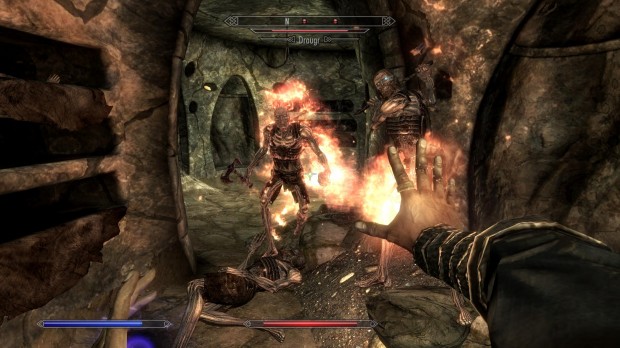
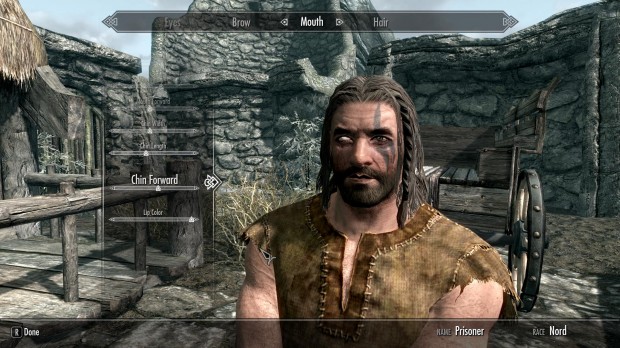

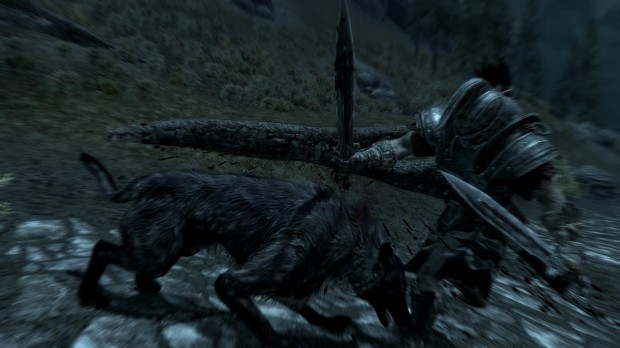
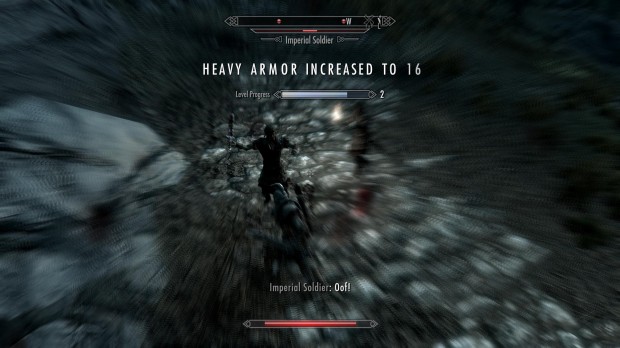
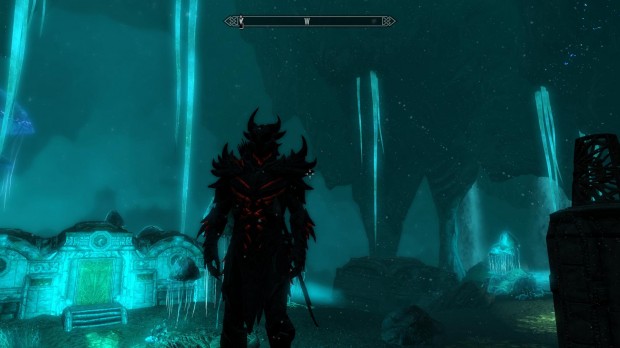





Have your say. Add your comments: